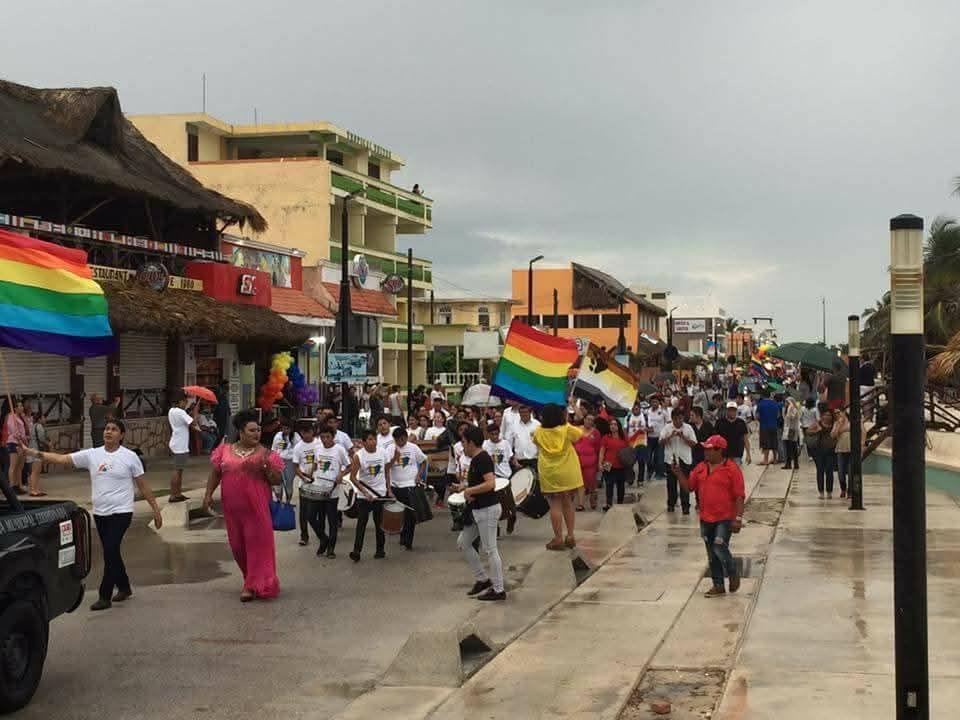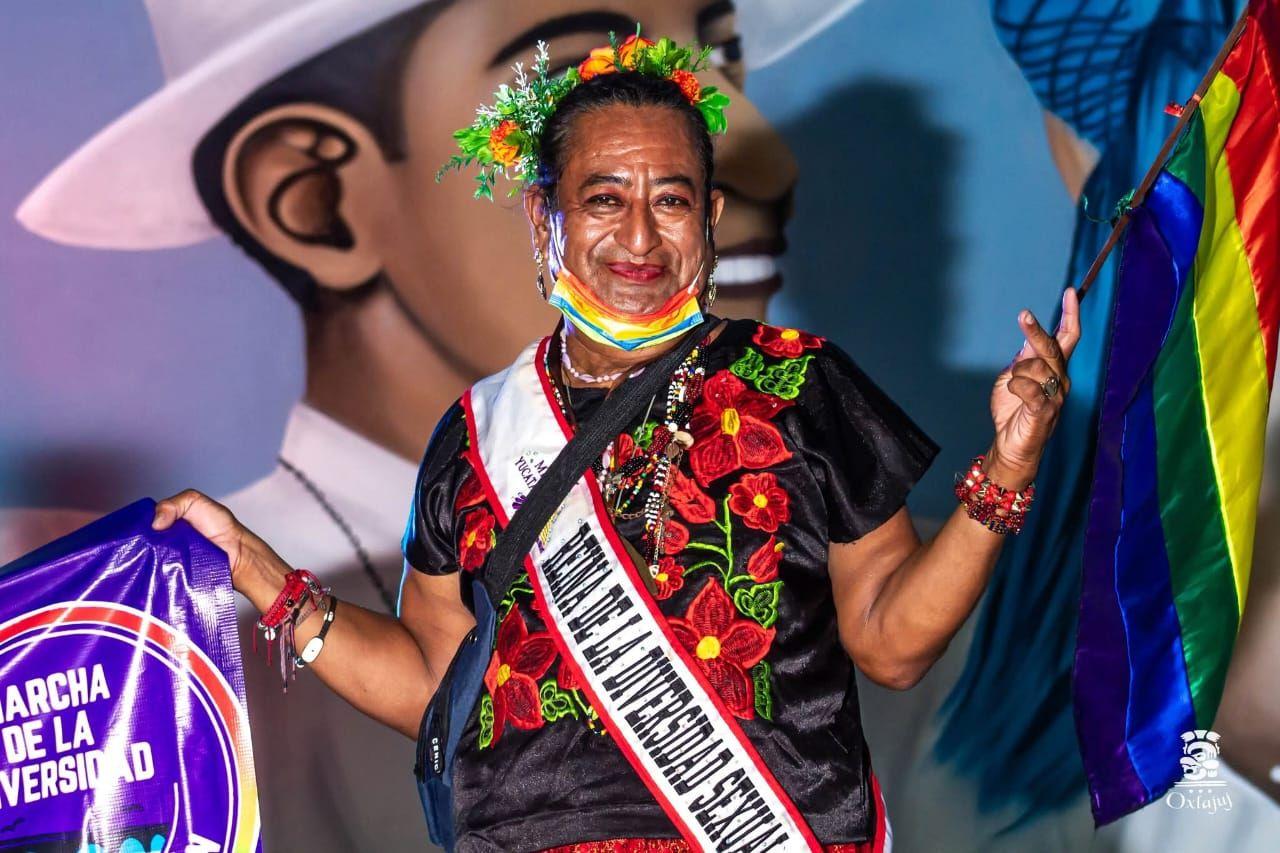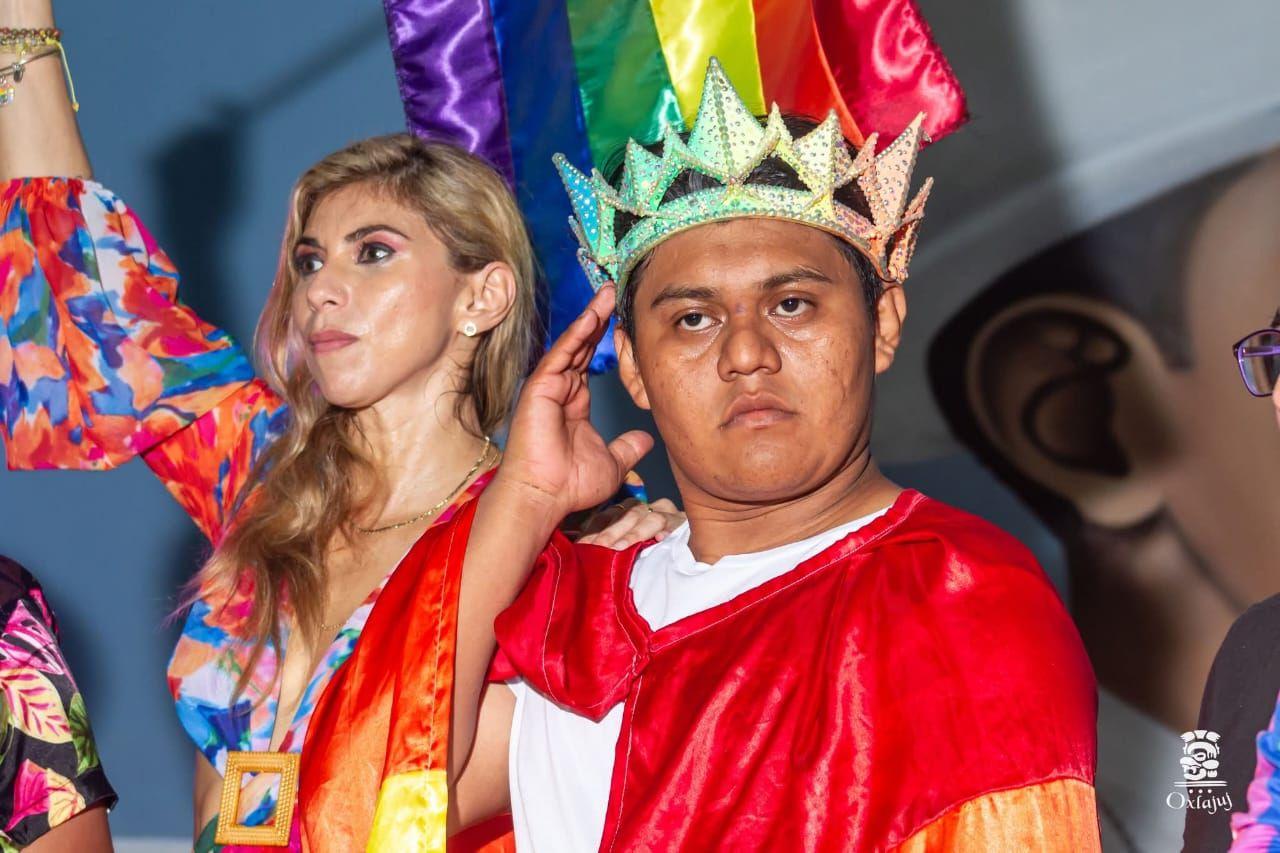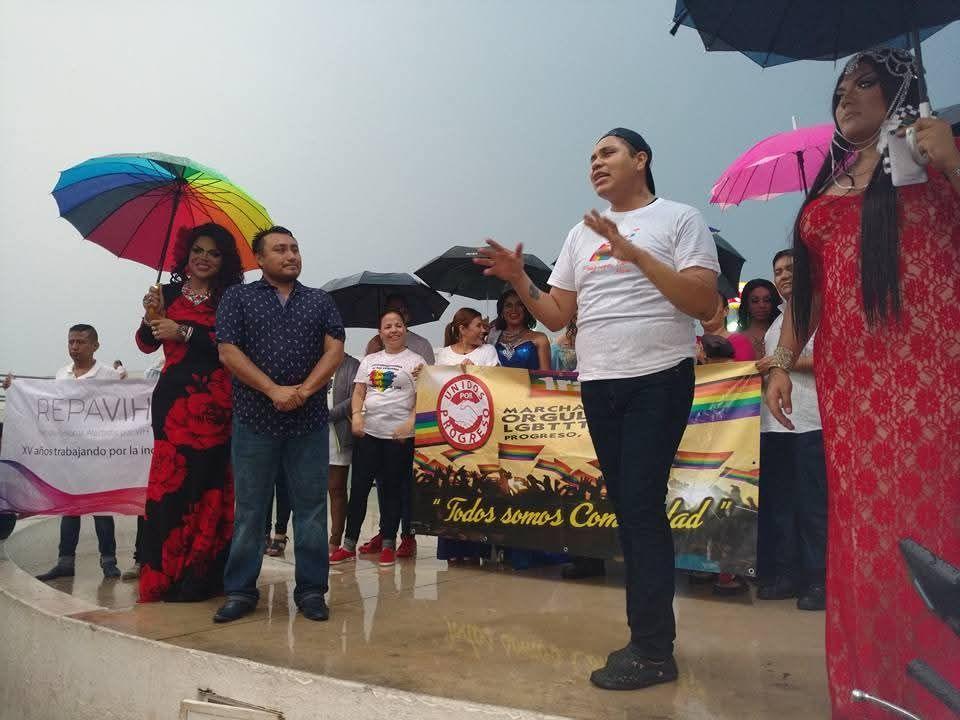On the coast of Yucatán, LGBTQI+ people are actively involved in fishing, but their existence within the sector is statistically invisible. There are no official figures to recognize them. For specialists, this lack limits the possibility of creating public policies that address their realities, recognize their rights and combat discrimination.
Amelia Ojeda Sosa, consultant in Gender and Access to Justice and coordinator of the Psychological, Sexological and Educational Care Unit for Personal Growth, A.C. (Unasse), stressed the importance of having accurate data for the design of public policies. The data, he said, allows us to size the population and understand its specific needs.
“With the numbers in hand, it is also possible to look at the population and awaken an interest in listening to them, to know what they need and if it is possible to develop programs in this regard, either to raise awareness and to call for non-discrimination,” he said.
From her experience as a lawyer, she stressed that knowing how many people from the LGBTQI+ community are involved in the fishing sector would help to make visible the intersections that cross them, such as living in indigenous areas, which, in many cases, aggravates conditions of discrimination.
“A public policy is not only about modifying legislation, but it is about creating efforts to give them access to health, education and reduce discrimination, also thinking that the daughters and sons of these couples have human rights that must be respected,” he said.
Historically, fishing has been a male-dominated activity. Women only represent 2.8% of the Yucatan Fishermen's Register, with 360 registered. But there is no exact data in this register for lesbian, gay, bisexual, trans, transvestite, queer, intersex and other dissidents (LGBTQI+).

Little by little, more spaces are opening up for dissent. Source: Cecilia Abreu.
Maritza Santana, a fisherman and diver who monitors in Celestún, identifies herself as a lesbian. For her, the sea represents freedom, a space where gender lines are blurred between those who make a living from fishing. Even so, it recognizes the urgent need to make dissent visible in order to be respected and integrated.
“Since I was a child, I was involved in fishing. My dad was a diver for a long time and I learned that, to fish with my lungs. Then, recently, together with colleagues, I learned to dive with an oxygen tank and now, in addition to fishing, I dedicate myself to seeing how the fish are doing, how the care of the sea is progressing or not because I am a monitor,” she explained.
Maritza celebrates that there are more and more spaces for women in the fishing field, which she considers to be a first step in opening the way to sexual diversity.
“We see how everything is improving, how women are already respected by their colleagues and I think that the next step will be for the entire LGBT community to be recognized and respected as well,” she said.
Maritza mentioned that in the sea the lines of gender disappear: Source: Maritza Santana.
Although he knows colleagues from other ports such as Rio Lagartos, El Cuyo, Sisal and Progreso who are part of the community, not all people feel free to express their gender identity.
“It was a little difficult for me and other female colleagues as lesbians to be fishing because of machismo, they didn't want to accept us as women on a boat, much less a lesbian woman, but right now at Celestún I work very well with my colleagues because they understand that our gender has nothing to do with work,” she said.
The challenge, he says, is not only at sea, but also in communities where derogatory expressions such as “machorras” persist. Maritza has focused on her work to demonstrate that her orientation does not interfere with her ability. Even so, he insists that more information is needed to sensitize society.
The use of expressions against people from the LGBTQI+ community in fishing is classified as a way to incite hatred, violence, rejection, mockery, insult, persecution or exclusion, in accordance with Article 9 of the Federal Law to Prevent and Eliminate Discrimination.

It is urgent to name the dissidents within the fishing sector. Source: Cecilia Abreu.
“The truth is, I would like there to be more data, more figures that tell us how many LGBT people we are in fishing because, for example, I have a young friend, he is gay and wants to become a monitor, but he feels a little sorry. My colleagues tell me to enter, that there is no problem, but if he were sure that he would not be discriminated against it would be easier,” he added.
Santana is convinced that having population data on LGBTQI+ participation in fishing would open up more opportunities and help combat prejudice.
“It would be really nice if they named us and I also feel that I could motivate more people not to shut up and really say who they are and show that their work is just as valuable as that of others. If we come together, we can shut up machismo,” he said.
They ask to make more spaces visible
Activists point out that sexual diversity in fishing remains invisible, mainly because of the discrimination, exclusion and symbolic violence that exists in these spaces.
According to the National Survey on Sexual and Gender Diversity of the National Institute of Statistics and Geography (Inegi), Yucatán is the second state in the country —after Colima— with the highest proportion of people who identify themselves as part of the LGBTQI+ community, with 151 thousand 552.
Most of these people acknowledge in the census that they have faced some form of discrimination throughout their lives.

The first sexual diversity march in Progreso, a coastal municipality, in 2017. Source: Irving de Diversidad Progreso A.C.
Keilanyx Glamx, a member of the Diversidad A.C. Collective, defends the rights of the LGBTQI+ community in Progreso, one of the most important fishing municipalities for its production in the state. From his experience, breaking with the traditional molds instilled in fishing families has been a complex process, although he recognizes advances.
“Being different involves striving to be recognized and called as one wants to be. Although it's difficult, it's not impossible. The struggle for identity and acceptance is a process that requires courage and determination,” he said.

Being an LGBTQI+ person among fishermen breaks barriers. Source: Irving de Diversidad Progreso A.C.
She grew up among fishermen and says that today she sees a greater inclusion of women and dissidents, although supporting data is still lacking.
“The fishing community has evolved over time. As the saying goes: those who do not adapt to the environment and accept it are destined to be rejected. There is a big breakthrough for everyone. Every step toward acceptance and inclusion is an important achievement. The fight for equality and justice continues, and it is essential to continue working towards a more inclusive and respectful future,” he said.
Kelly Ramírez Alpuche, president of Yucatán Substantive Equality, noted that obstacles still persist in sectors such as fishing for those who express a non-binary gender identity.
“For many years, fishing has been mainly an activity for men and now that spaces are opening up for women, it is still an opportunity for dissent,” he said.

Activists say that opening spaces for dissent in fishing communities is an act of courage. Source: Irving de Diversidad Progreso A.C.
Although Inegi provides figures at the national level, academics from the National Autonomous Universities of Mexico (UNAM) and the Autonomous University of Yucatán (UADY) agree on the urgency of generating local data on dissent. For this reason, they are working on the Situational Diagnosis of LGBTIQ People in Yucatán 2025, which collects information on discrimination, health, social support and the use of technologies among sexually diverse people.
This project was born from a previous survey of 7,400 people nationwide. 93.5% reported having been discriminated against at some point in their lives because of their orientation or identity. The spaces where they face ridicule or rejection the most are schools, families, hospitals and work/trade centers.
In addition, 22.5% —one in five—said they had been subjected to practices known as Efforts to Correct Sexual Orientation and Gender Identity (Ecosig): attempts, often violent, to “correct” their identity. These practices, although condemned by human rights organizations, continue to occur in different regions of the country.

Progreso was one of the first municipalities where marches for sexual diversity were organized. Source: Irving de Diversidad Progreso A.C.
The diagnosis is coordinated by Dr. Juan Carlos Mendoza Pérez from UNAM and, in Yucatán, by teacher Julio César Trejo, in collaboration with other UADY academics and with support from the Youth Secretariat. The survey will be available until August and can be answered at the following link: https://goo.su/rQOzfr
Regarding the survey, lawyer Amelia Ojeda highlighted the importance of its scope not being limited to the fishing sector, but also reaching the agricultural sector and other workspaces such as maquilas. For her, making sexual dissent visible in all contexts is essential to advance the recognition of their rights.
“It is important that this survey permeates many areas of society so that they have rich information that allows for the design of real public policies,” he said.




Comentarios (0)